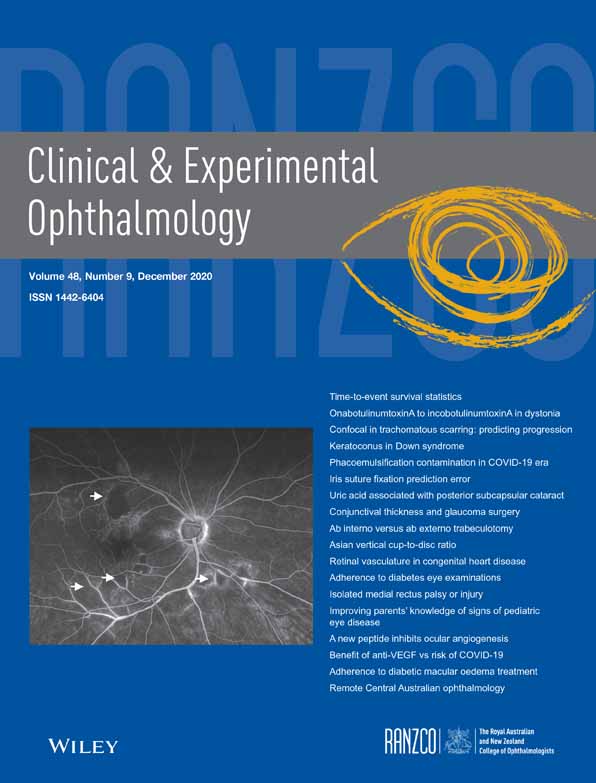Novel peptide derived from IGF-2 displays anti-angiogenic activity in vitro and inhibits retinal angiogenesis in a model of oxygen-induced retinopathy
Funding information: National Nature Science Funding of China, Grant/Award Number: 81402233
Abstract
Background
Retinopathy of prematurity (ROP), a major cause of significant visual morbidity and blindness in preterm infants, is closely related to pathological angiogenesis. The aim of the study is to evaluate the effect of a new 12-aa peptide (named peptide CW-703) from human insulin-like growth factor-2, against angiogenesis in ROP.
Methods
In order to evaluate the inhibitory effect of CW-703 on the proliferation, migration, tube formation and apoptosis of human umbilical vein endothelial cells (ScienCell) in vitro, we used MTS assays, a modified Boyden chamber, Matrigel system and TUNEL assays. Effects in vivo were assayed using chorioallantoic membrane assays and oxygen-induced retinopathy (OIR) models in mice. We also performed eletrophysiological and histologic examinations to evaluate the possible toxicity of the peptide. Real-time PCR, ELISA and western blotting were used to elucidate the mechanism of CW-703.
Results
CW-703 inhibited angiogenesis in vitro by suppressing endothelial cell proliferation, migration and tube formation. CW-703 also prevented angiogenesis in chicken chorioallantoic membrane assays and OIR assays in mice. No evident functional or morphologic abnormalities in neuroretina after CW-703 injection were revealed in electrophysiological tests and histological examinations. Moreover, we elucidated that CW-703 competed for binding to IGF-1R and inhibited angiogenesis by inhibiting IGF-1R/PI3K/AKT activation and downregulating vascular endothelial growth factor expression.
Conclusion
The novel peptide CW-703 may act as an effective inhibitor of ocular pathologic angiogenesis, especially in treating ROP.
CONFLICT OF INTEREST
None declared.




